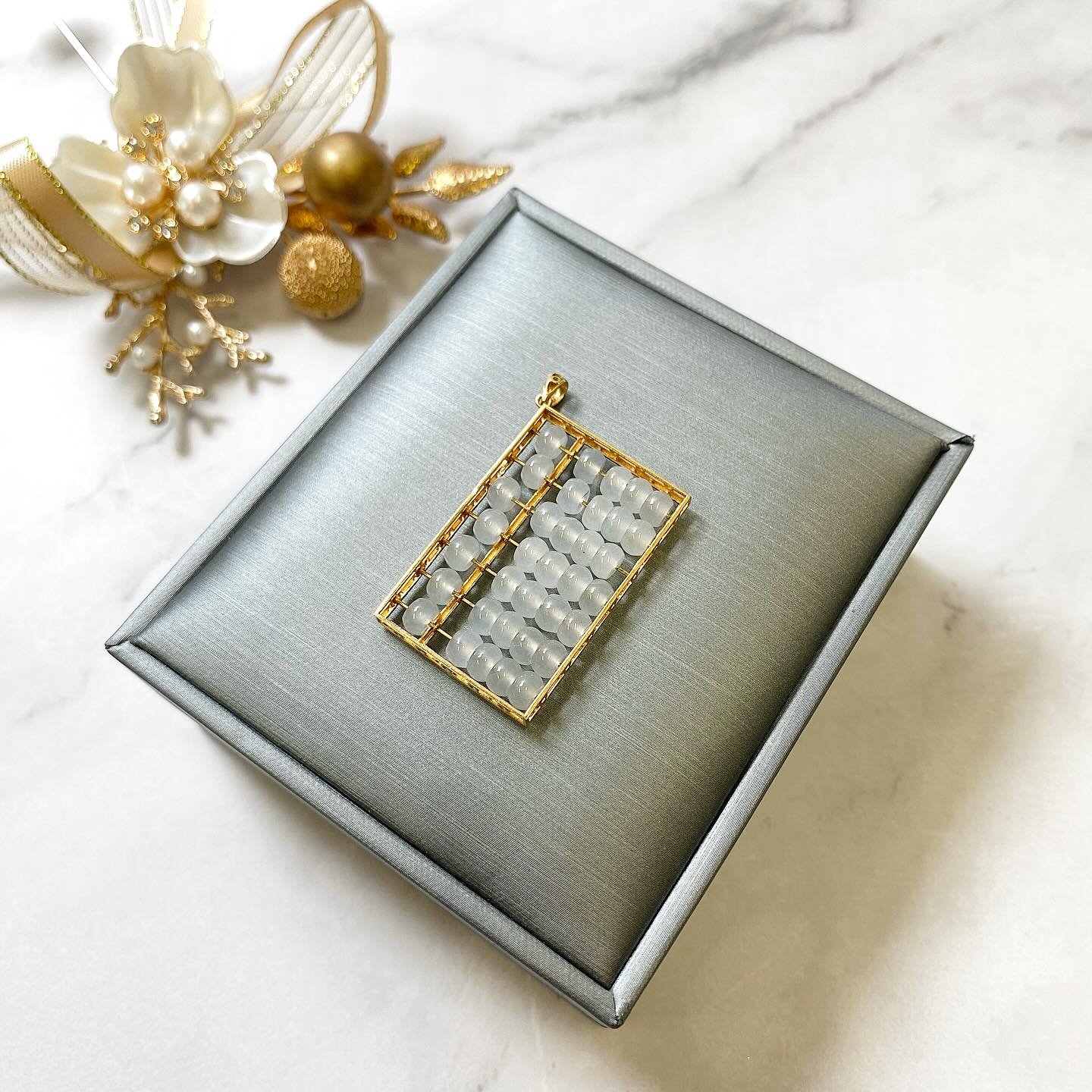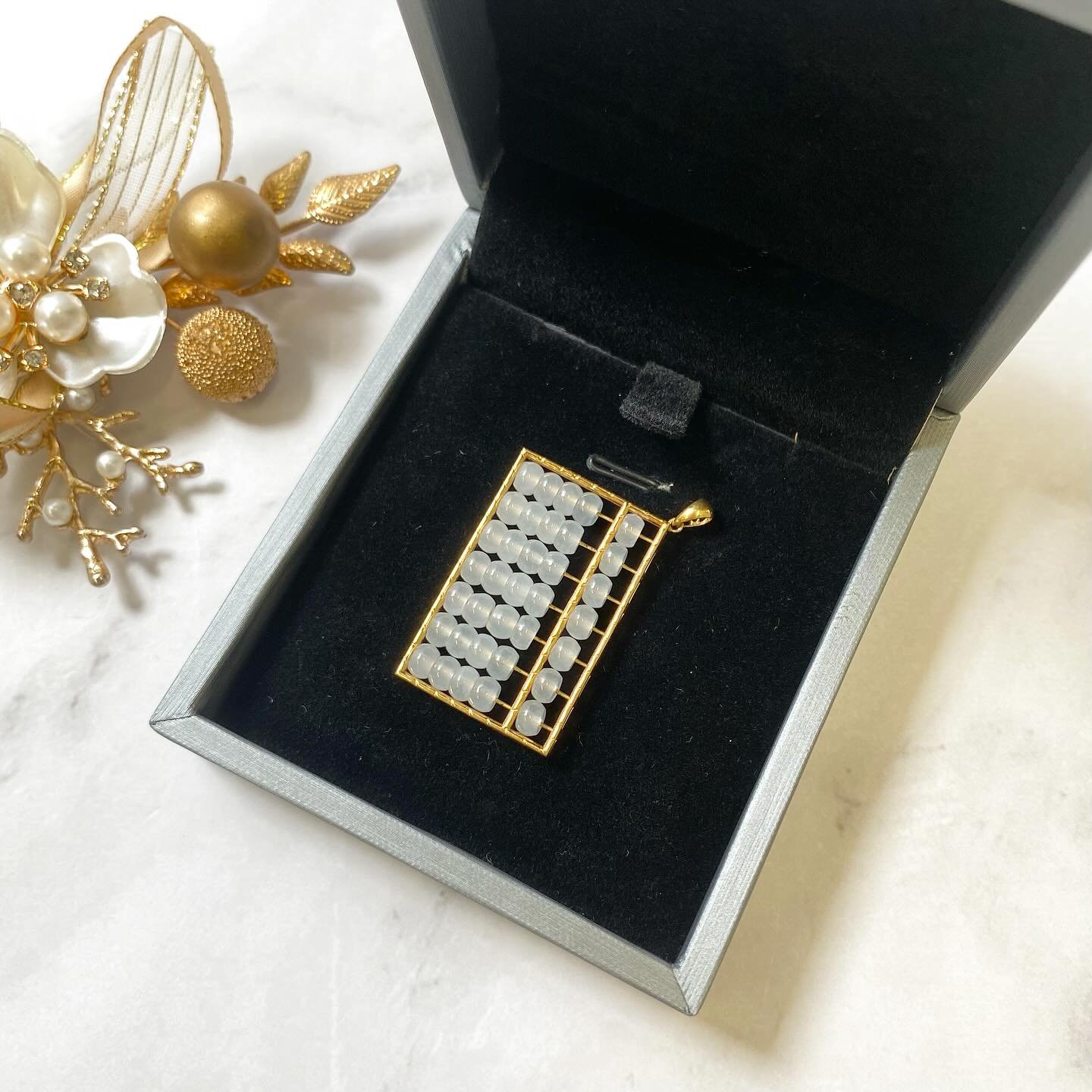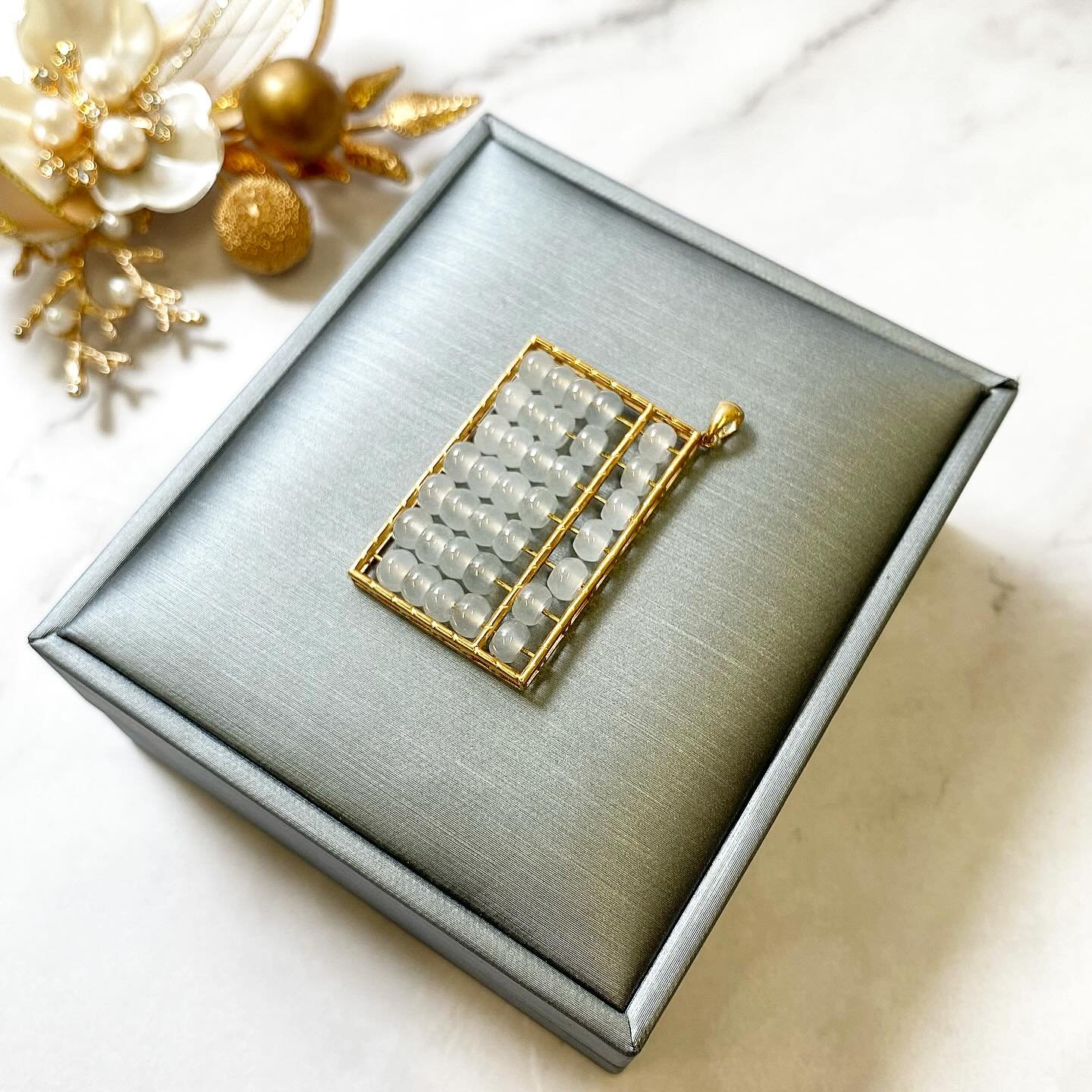[Signature] The Soroban
The soroban (算盤, そろばん, counting tray) is an abacus developed in Japan. It is derived from the ancient Chinese suanpan, imported to Japan in the 14th century. Like the suanpan, the soroban is still used today, despite the widespread modernisation of electronic calculators.
Seen here is a solid handmade 18-karat yellow gold abacus, each rod hand connected and made with the finest icy variety jadeite abacus shaped beads.
This piece is visibly larger, beautifully made and can be worn as a pendant.
Stone: Natural Fei Cui Jade (Type A)
Translucency: Highly translucent
Size: 34 x 21.6 x 2.6mm
Design: Pendant
Colour: Colourless
P100324
The soroban (算盤, そろばん, counting tray) is an abacus developed in Japan. It is derived from the ancient Chinese suanpan, imported to Japan in the 14th century. Like the suanpan, the soroban is still used today, despite the widespread modernisation of electronic calculators.
Seen here is a solid handmade 18-karat yellow gold abacus, each rod hand connected and made with the finest icy variety jadeite abacus shaped beads.
This piece is visibly larger, beautifully made and can be worn as a pendant.
Stone: Natural Fei Cui Jade (Type A)
Translucency: Highly translucent
Size: 34 x 21.6 x 2.6mm
Design: Pendant
Colour: Colourless
P100324
The soroban (算盤, そろばん, counting tray) is an abacus developed in Japan. It is derived from the ancient Chinese suanpan, imported to Japan in the 14th century. Like the suanpan, the soroban is still used today, despite the widespread modernisation of electronic calculators.
Seen here is a solid handmade 18-karat yellow gold abacus, each rod hand connected and made with the finest icy variety jadeite abacus shaped beads.
This piece is visibly larger, beautifully made and can be worn as a pendant.
Stone: Natural Fei Cui Jade (Type A)
Translucency: Highly translucent
Size: 34 x 21.6 x 2.6mm
Design: Pendant
Colour: Colourless
P100324




